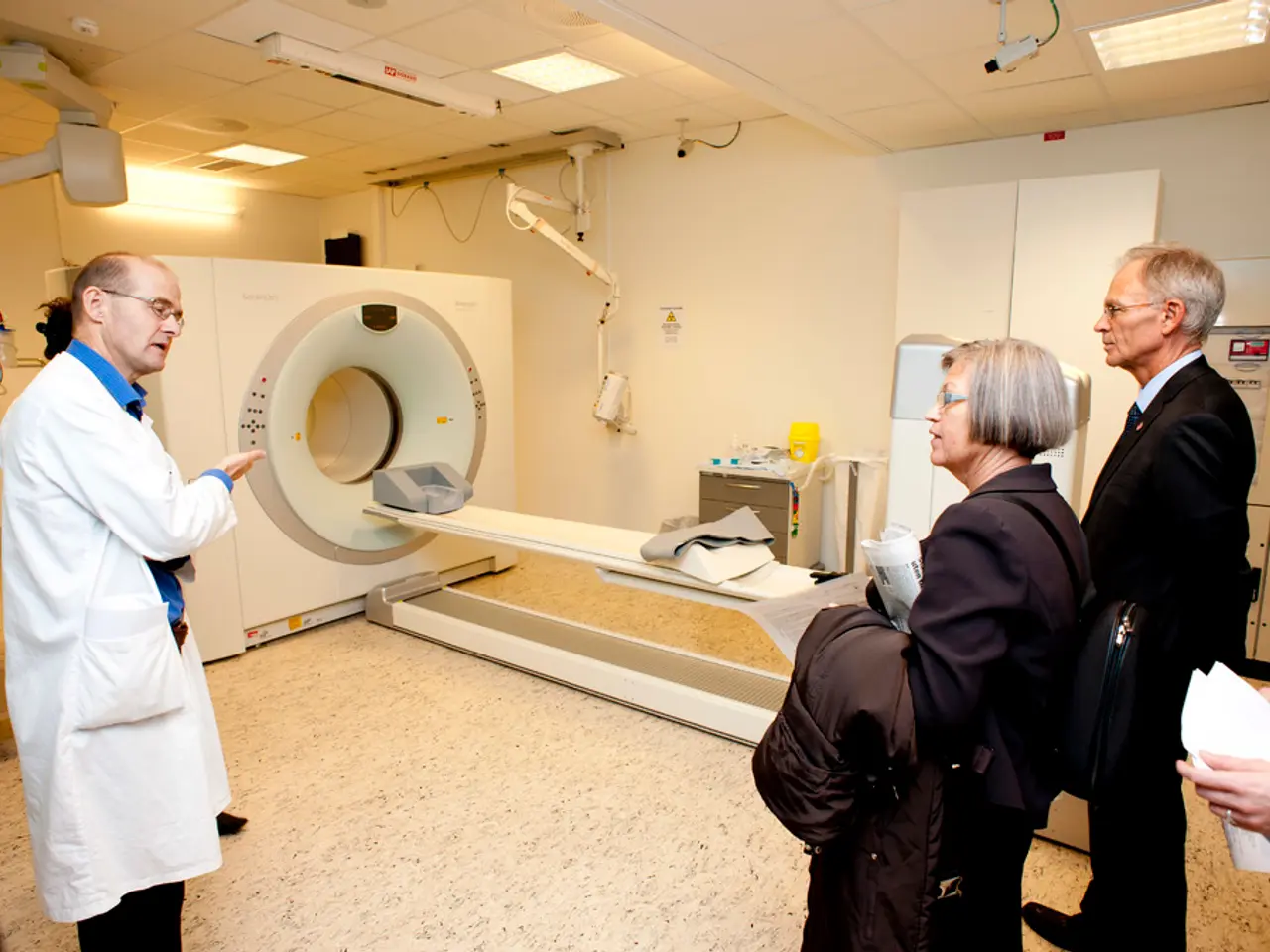Abnormal Respirations and Related Therapies
In the human body, abnormal breath sounds, also known as lung sounds, can provide crucial insights into underlying lung conditions. These sounds, which may include crackles, wheezes, and pleural friction rubs, are often indicative of inflammation or fluid buildup in the lungs.
### Types of Abnormal Breath Sounds Related to Inflammation/Fluid
Abnormal breath sounds related to inflammation or fluid in the lungs can be categorised as crackles (rales), wheezes, and pleural friction rubs.
**Crackles** are discontinuous, short, popping or bubbling sounds heard during inspiration, often at the lung bases. They occur when small airways and alveoli, which may be collapsed or filled with fluid or mucus, suddenly open during inspiration. Common causes associated with these crackles include pneumonia, pulmonary edema, heart failure, pulmonary fibrosis, adult respiratory distress syndrome (ARDS), and congestive heart failure (CHF).
**Wheezes** are continuous, high-pitched, musical sounds on expiration (sometimes inspiration) heard over narrowed bronchi. They result from narrowed or constricted airways due to inflammation or mucus. Conditions like asthma, bronchitis, and chronic obstructive pulmonary disease (COPD) often cause wheezing.
**Pleural friction rubs** are superficial, low-pitched grating or rubbing sounds heard during both inspiration and expiration. They occur when the pleural layers are inflamed (pleuritis), causing them to rub against each other during breathing.
### Causes
Crackles arise when small airways and alveoli, which may be collapsed or filled with fluid or mucus, suddenly open during inspiration. Wheezes result from narrowed or constricted airways due to inflammation, mucus, or bronchospasm. Pleural friction rubs occur when the pleural layers are inflamed (pleuritis), causing them to rub against each other during breathing.
### Treatments
Treatment for abnormal breath sounds depends on the underlying cause. For fluid-related crackles, diuretics may be prescribed to reduce pulmonary edema, antibiotics for bacterial pneumonia, and supportive care including oxygen and ventilation if needed. For wheezing due to airway inflammation, bronchodilators, anti-inflammatory medications, and treatments for underlying conditions like infections, asthma exacerbations, or COPD management may be necessary. For pleural friction rubs, anti-inflammatory drugs, treatments for underlying infections or causes of pleuritis, and sometimes drainage if there is associated pleural effusion may be required.
### Conclusion
Abnormal breath sounds, particularly crackles, wheezes, and pleural friction rubs, offer valuable clinical clues about underlying lung pathology. Effective treatment targets the underlying cause—such as infection, fluid overload, or airway inflammation—to resolve these sounds. Regular check-ups and medication may be necessary for individuals with chronic conditions. It's essential to seek medical attention if you experience continuous abnormal breathing sounds, as they may indicate a more severe underlying condition.
[1] [Medical News Today: Abnormal breath sounds](https://www.medicalnewstoday.com/articles/325001) [2] [Mayo Clinic: Abnormal breath sounds](https://www.mayoclinic.org/diseases-conditions/pneumonia/symptoms-causes/syc-20353923) [3] [Healthline: Abnormal breath sounds](https://www.healthline.com/health/abnormal-breath-sounds) [4] [Pulmonary Fibrosis Foundation: Abnormal breath sounds](https://www.pulmonaryfibrosis.org/lung-health/lung-function/abnormal-breath-sounds)
Abnormal breath sounds highlight potential underlying lung conditions, such as dermatitis affecting eye-health, diabetes impacting cardiovascular-health, multiple sclerosis impacting neurological-disorders, or ulcerative colitis impacting digestive-health. Crackles may suggest depression related to mental-health, atopic dermatitis related to skin-conditions, or HIV affecting immune-system.
Wheezes may indicate asthma-related respiratory-conditions, COPD accelerated by smoking and aging, or psoriasis-related skin-care issues. Pleural friction rubs could indicate Crohn's disease affecting digestive-health, or sclerosis impacting skin-care and neurological-disorders.
Treatments for these conditions often involve practices like workplace-wellness programs, therapies-and-treatments from medical professionals, and addressing nutrition and weight-management. Medication and medical-conditions like medicare coverage for chronic-diseases, type-2 diabetes, and cancer can benefit from monitoring and management strategies.
Predictive science aids in early detection and prevention of severe underlying conditions like sleep apnea, heart diseases, and hearing loss. Fitness-and-exercise, hearing care, and eye-health practices can help manage multiple medical-conditions and prevent new ones from developing.
Sexual-health awareness is crucial given its impact on overall health, while addressing autoimmune-disorders and mental-health concerns like anxiety and depression is essential for comprehensive workplace-wellness programs. Men's-health initiatives focus on prostate health, heart diseases, and mental well-being.
Education on various health topics such as skin-care, aging, and women's-health is crucial for parenting and promoting a healthy lifestyle. Understanding the complex links between these health-and-wellness aspects can help individuals take control of their own well-being and seek the right resources for their unique needs.
The use of CBD oil has potential benefits for managing certain chronic-diseases, such as inflammation, mental-health concerns, and sleep disorders. Continuous research and development in science are necessary to unlock the full potential of CBD and other therapeutic approaches for various medical-conditions.







